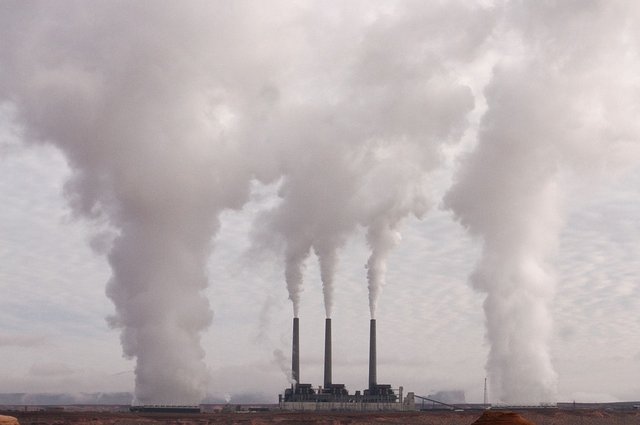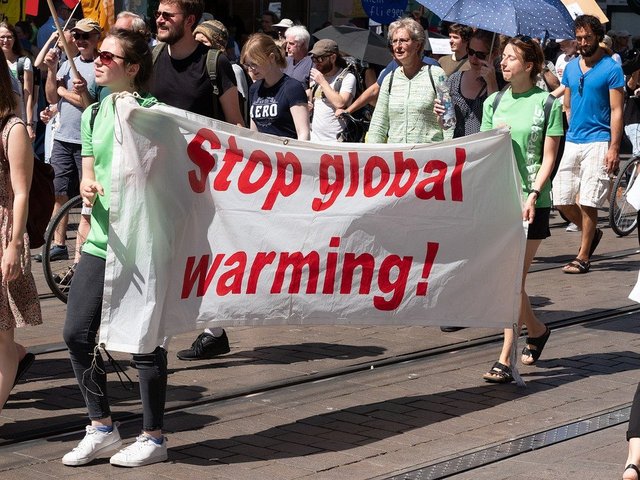Although several nations have made significant investments with the goal of achieving climate neutrality in the coming decades, a report recently published by the Cluster of Excellence, Climate, Climate Change and Society (CLICCS) concludes that the goal of achieving deep decarbonization by 2050 is not possible.

Complete decarbonization of the energy sector could be further away. Source: pixabay.com.
The report argues that most of the social drivers for achieving carbon neutrality in the world's major powers are insufficient. The researchers analyzed not only the possibility but also the plausibility from a techno-economic perspective of a zero-emission climate future, and also analyzed the societal changes that must occur to achieve such a future. The conclusion is that further efforts must be made to achieve societal transformation, a determining factor in achieving the ambitious goal.
The future of the climate does not only depend on the development of technology, so the researchers focused on analyzing its relationship with social changes. For the study, they focused on five aspects that they considered to be important drivers of social change: United Nations climate policy, national climate legislation, protests and social movements, disinvestment in fossil fuel industries and media coverage.

Public pressure and social movements are key to advancing change. Source: pixabay.com.
According to the report, none of these social drivers assessed currently appear to have sufficient momentum to promote the changes needed to achieve deep decarbonization by 2050, however most of the drivers assessed support the goal of zero net emissions and appear to be sufficient to promote gradual decarbonization, but achieving the Paris Agreement agreements is critical to advancing full decarbonization by mid-century and this will require strengthening nations' climate policies and more people pressuring their governments for effective climate action, and the return of protests after this pandemic will be an important factor.
The authors point out that at the moment the scenarios of high CO2 emissions and social factors do not make a significant change plausible without disinvestment in fossil fuel-based technologies, however, the study also points out that due to finite coal and oil resources and green technologies becoming more and more accessible, it will be very costly to maintain this approach, and companies and governments will have to change this energy scheme in the near future.
This report is not only a wake-up call for governments and companies, but also for the community in general, since social pressure is a determining factor in driving any change, and the challenge of motivating society to demand a cleaner climate is much greater than one might think, and it is fundamental for their governments to promote the actions that the planet needs.
Thanks for coming by to read friends, I hope you liked the information. See you next time.

Hello @emiliomoron
Faced with such an important question "Will it be possible to achieve decarbonization by 2050?", I think the scenario does not favor us, beyond so much information in concrete measures to counteract the imbalances of accelerated carbon generation have no appreciable impacts, we have more than two decades just leading international summits seeking to reduce the emission of CO2, and to date we have only accelerated the emission of polluting gases.
Best regards, be well.
Downvoting a post can decrease pending rewards and make it less visible. Common reasons:
Submit
That's right my friend, precisely the report of this group concludes that it is not possible to achieve this goal with the current policies and movements, we need more momentum. Happy day my friend!
Downvoting a post can decrease pending rewards and make it less visible. Common reasons:
Submit
Hello @emiliomoron
It seems to me that we are not on track to achieve that goal, and those who could accelerate that process are not doing so. Beyond the agreements that were intended with the Paris agreement, there are previous agreements between states and large corporations that involve the use of fossil fuels, the economy is still largely sustained on this, so, as long as the great powers do not make a real effort, even if everyone came out to demonstrate demanding it, I think not much would be achieved.
Downvoting a post can decrease pending rewards and make it less visible. Common reasons:
Submit
I think that precisely these nations do not do much because there is no more pressure than a group of environmentalists and scientists warning about future problems, if people went out to demand a change as well as they go out to demand some other right maybe we would see more consideration by governments. Greetings my friend!
Downvoting a post can decrease pending rewards and make it less visible. Common reasons:
Submit
As per my thinking we cannot achieve this because the way we are using the fuel we cannot achieve this the more we are cutting tree and destroying Nature.
Downvoting a post can decrease pending rewards and make it less visible. Common reasons:
Submit
Certainly we have acquired a self-destructive culture, where it is easier to cut and burn without worrying about the consequences because others may suffer in the future, we are only interested in the now.
Downvoting a post can decrease pending rewards and make it less visible. Common reasons:
Submit
I doubt it will be achievable because any energy which will promote cleaner climate will be quite expensive and not everyone will be able to afford it. And as we advance in technology, we destroy the ozone layer even more.
Thanks for sharing this wonderful article with us @emiliomoron
Downvoting a post can decrease pending rewards and make it less visible. Common reasons:
Submit